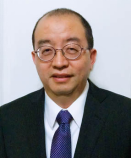讲座题目:Pore Engineering and Its Potential Applications
讲座时间:2023年1月10日(周二)9:00~10:30
讲座地点:腾讯会议 863-394-967 (密码123456)
主讲嘉宾:Prof. Hong-Cai Zhou (Texas A&M University)
 Hong-Cai “Joe” Zhou obtained his Ph.D. in 2000 from Texas A&M University. After a postdoctoral stint at Harvard University, he joined the faculty of Miami University, Oxford in 2002 and was awarded tenure in 2007. He was hired by Texas A&M University in 2008 as a full professor and was promoted to a Davidson Professor of Science in 2014. He became a Robert A. Welch Chair in Chemistry in 2015. He was elected a fellow of AAAS, ACS, and RSC, respectively in 2016. He was recognized as a Highly Cited Researcher (Clarivate) from 2014 to 2022 in nine consecutive years. He is a pioneer in “pore engineering”, Texas Pore Engineering Conference (texaspec.net), the design and synthesis of structures with desired individual and collective pore behaviors. His recent research focuses on the discovery of synthetic methods to obtain robust framework materials with unique catalytic activities or desirable properties for clean-energy-related applications such as gas storage, separation, sensing and catalysis. He has published 491 papers (ORCID: 0000-0002-9029-3788) with an h-index of 130 (Google Scholar accessed on Jan. 4, 2023).
Hong-Cai “Joe” Zhou obtained his Ph.D. in 2000 from Texas A&M University. After a postdoctoral stint at Harvard University, he joined the faculty of Miami University, Oxford in 2002 and was awarded tenure in 2007. He was hired by Texas A&M University in 2008 as a full professor and was promoted to a Davidson Professor of Science in 2014. He became a Robert A. Welch Chair in Chemistry in 2015. He was elected a fellow of AAAS, ACS, and RSC, respectively in 2016. He was recognized as a Highly Cited Researcher (Clarivate) from 2014 to 2022 in nine consecutive years. He is a pioneer in “pore engineering”, Texas Pore Engineering Conference (texaspec.net), the design and synthesis of structures with desired individual and collective pore behaviors. His recent research focuses on the discovery of synthetic methods to obtain robust framework materials with unique catalytic activities or desirable properties for clean-energy-related applications such as gas storage, separation, sensing and catalysis. He has published 491 papers (ORCID: 0000-0002-9029-3788) with an h-index of 130 (Google Scholar accessed on Jan. 4, 2023).
讲座简介:
Design and synthesis of porous structures with desired pore environments are essential for many energy-related industrial applications, including separation, storage, sensing, and catalysis. From a perspective of synthetic chemistry, metal-organic frameworks (MOFs) are regarded as a series of crystalline porous structures that are highly tunable over their components and pore spaces. In addition, the presence of labile or reactive sites, including labile coordination bonds and dynamic covalent bonds, enables researchers to precisely tune the pore environments for guest recognition and capture.
The Zhou group focuses on the pore engineering of MOFs, which includes but not limited to the generation of various levels (microporous, nanoporous, mesoporous, and macroporous) of porosity, the creation of hierarchically porous structures, pore surface modification, pore combination, and pore partition. The structural modification of the intrinsic cavities within MOFs results in alteration of functionality, such as selective recognition and cooperative behavior. This structure-property relationship highlights the importance of constructing pore spaces with precisely controlled sizes and functionalities for various chemical processes. The pore engineering methods are expected to be applicable to diverse MOFs, which shall provide essential guidance on synthesizing increasingly complex materials for various practical applications, especially for catalysis and bio-medical applications.
The seminar will cover synsthetic methods that have been developed in the Zhou lab such as “bridging-ligand substitution”, “ligand-fragment co-assembly”, “kinetic analysis and tuning”, “linker installation”, “linker labilization”, “cluster and linker metalation”, “linker migration”, “domino lattice rearrangement”, and “retrosynthetic design”.